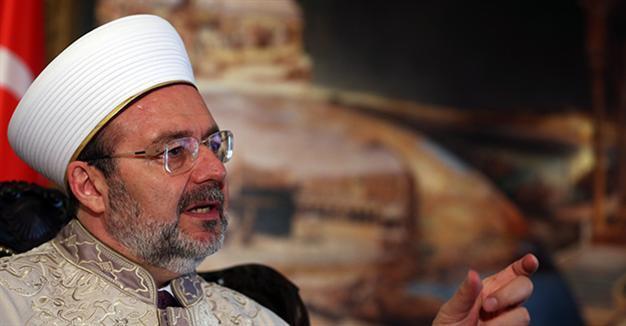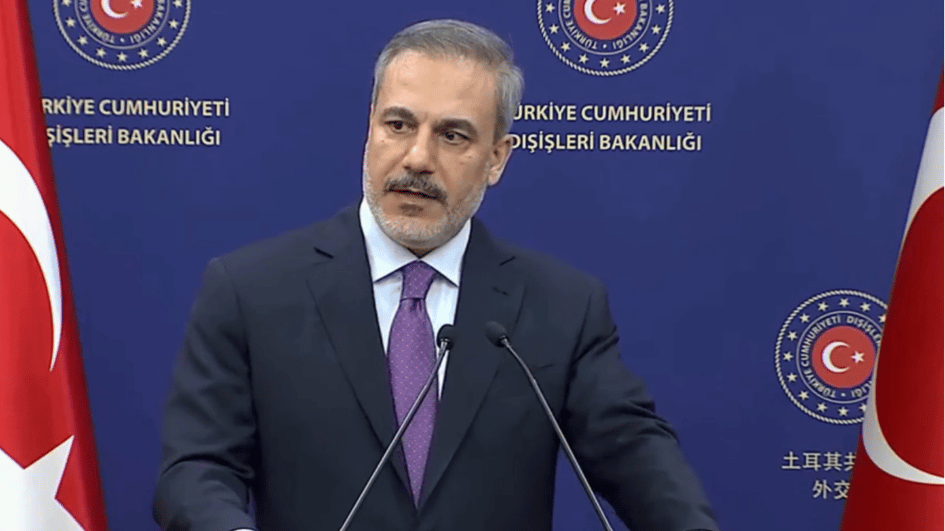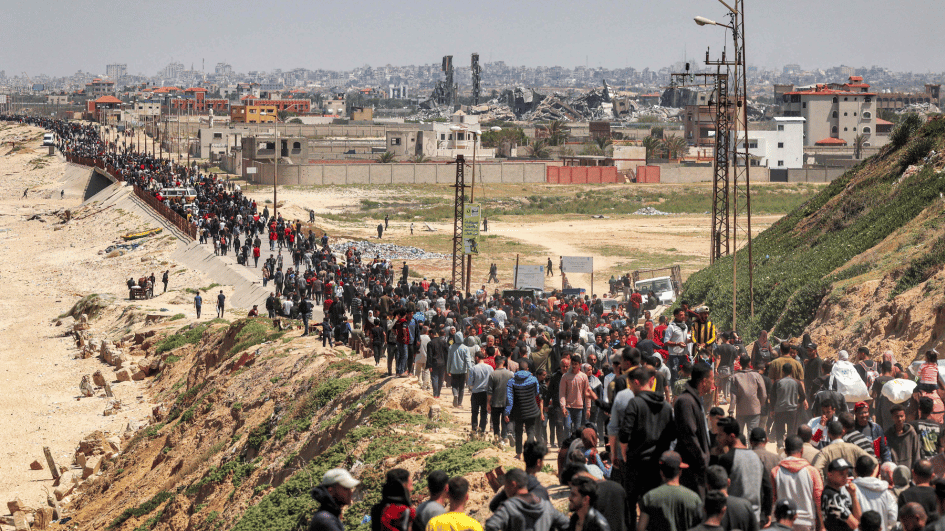Moon, sky decide timing for Eid, says Turkey’s top cleric
ANKARA – Anadolu Agency
 The head of Turkey’s Religious Affairs Directorate (Diyanet) on July 6 defended the decision to mark the first day of the Eid al-Fitr on July 5, a day ahead of the rest of the Muslim world.
The head of Turkey’s Religious Affairs Directorate (Diyanet) on July 6 defended the decision to mark the first day of the Eid al-Fitr on July 5, a day ahead of the rest of the Muslim world. Diyanet head Mehmet Görmez said Muslims should not necessarily follow Saudi Arabia’s lead in determining the days of religious festivals such as Eid al-Fitr, the three-day holiday that follows the fasting month of Ramadan.
“The Kaaba is our qiblah [the direction of prayer], not a place for determining time. These times are determined by the [appearance of the] new moon and the sky,” Görmez said in an exclusive interview with Turkey’s state-run Anadolu Agency, referring to the top sacred mosque of the Muslim world located in Mecca.
“The fact that the Kaaba, the Masjid Nabawi [Mosque of the Prophet] and the Hajj pilgrimage are administered by one country does not mean that we will change the laws and rules of Allah,” he added. “Islam is a universal religion, which was revealed not to a particular geographical region but to the whole world and all of mankind.”
The Hijri calendar is based on the lunar cycle so Ramadan ends with the appearance of the new moon, which also signals the beginning of the Eid al-Fitr holiday.
Since the new moon does not always appear on the same day in different countries, disagreements occasionally arise over exactly when Eid should begin.
This year, a number of Arab states, including Saudi Arabia, decided to extend the month of fasting by an extra day as the crescent moon could not be observed from locations within their borders.
Turkey, however, commenced the Eid al-Fitr celebrations on July 5, as Diyanet sent two officials to Chile, where the crescent moon appears first. According to the country’s top religious body, sighting the crescent moon anywhere in the world marks the end of Ramadan.
Although most of the Arabic-speaking world follows the lead of Saudi Arabia, some Muslims in the Balkans also marked the beginning of Eid on July 5.
This year’s controversy emerged only a month after Muslim clerics from across the world gathered in Istanbul on May 30 and agreed on a unified Islamic calendar to determine religious days and festivals.
Representatives from around 50 countries including Turkey, Malaysia, Egypt and the U.S. agreed on the proposal at a conference in Istanbul.
Ramadan, the ninth month of the Islamic calendar, is a time when Muslims abstain from food, drink, smoking and sex from sunrise to sunset. It is a time of self-examination and increased religious devotion, as well as a time of increased religious observance and socializing, with families sharing rich meals after sunset followed by gatherings with friends or neighbors.
















